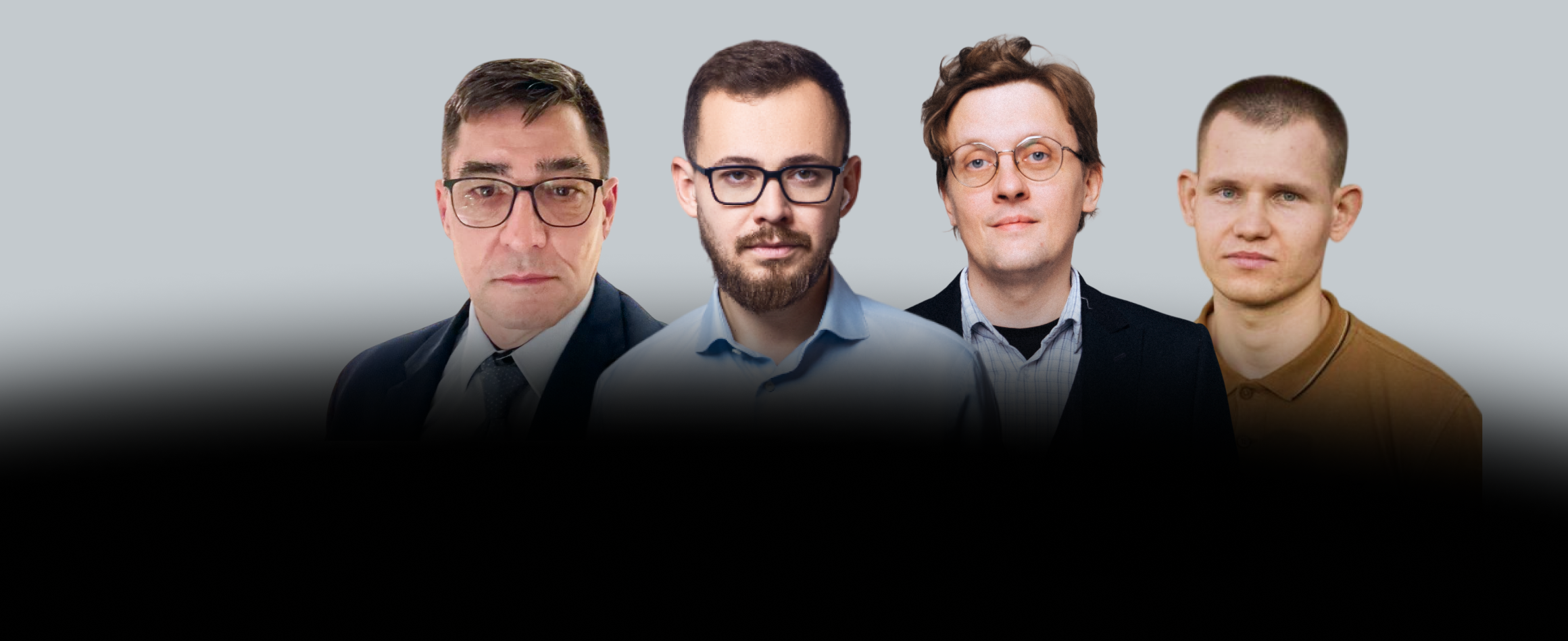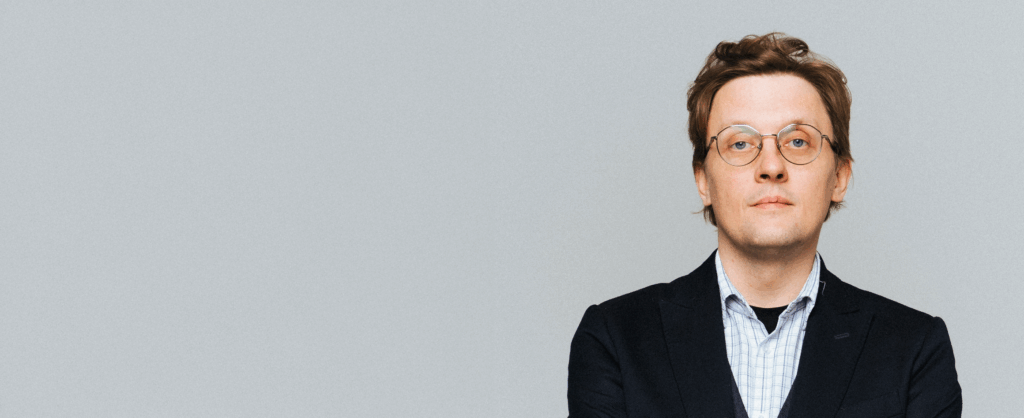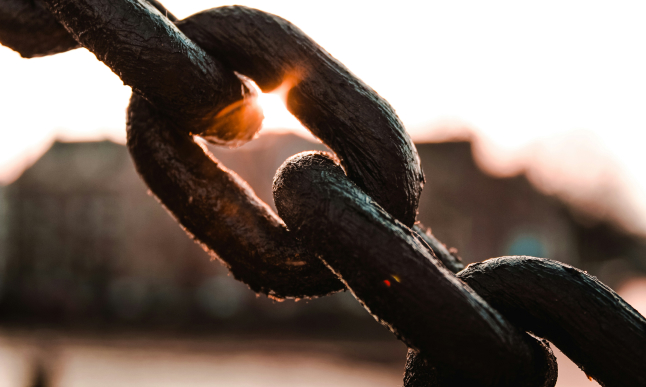Politics of Fear
How Repression Turned Justice Into a Tool of Control
By Free Russia Foundation November 20, 2025

How Repression Turned Justice Into a Tool of Control
By Free Russia Foundation November 20, 2025

Despite the largest prisoner‑of-war exchanges in years and the release of some Belarusian political prisoners, pressure on citizens in both Russia and Belarus continues to intensify. Far from easing, both regimes are expanding systems of political control and intimidation — not only within their own borders, but also across the Ukrainian territories occupied by Russia, where any sign of dissent is swiftly suppressed.
At the WHDC‑OSCE international conference in Warsaw, Free Russia Foundation Vice President Grigory Frolov joined human rights defenders Sergey Davidis and Andrei Chepyuk, as well as FRF’s Director of the International Justice Program Vladimir Zhbankov, to discuss these trends.
Despite the largest prisoner‑of-war exchanges in years and the release of some Belarusian political prisoners, pressure on citizens in both Russia and Belarus continues to intensify. Far from easing, both regimes are expanding systems of political control and intimidation — not only within their own borders, but also across the Ukrainian territories occupied by Russia, where any sign of dissent is swiftly suppressed.
At the WHDC‑OSCE international conference in Warsaw, Free Russia Foundation Vice President Grigory Frolov joined human rights defenders Sergey Davidis and Andrei Chepyuk, as well as FRF’s Director of the International Justice Program Vladimir Zhbankov, to discuss these trends.
Over the past year, Belarus has reshaped its criminal legislation under the guise of “technical” amendments. Instead, these changes have legalized mass trials in absentia and the confiscation of property belonging to people who left the country long ago.
Over the past year, Belarus has reshaped its criminal legislation under the guise of “technical” amendments. Instead, these changes have legalized mass trials in absentia and the confiscation of property belonging to people who left the country long ago.
The so‑called “Hajun case” has become emblematic: an investigation targeting users of a chatbot created to track the movement of Russian military equipment. After the bot was hacked, security services launched mass arrests, including of former political prisoners.
Arrests in absentia have also become widespread. Grounds for opening a case now include nearly any action that Belarusian authorities classify as a crime.
As former political prisoner and Viasna volunteer Andrei Chepyuk notes:
The so‑called “Hajun case” has become emblematic: an investigation targeting users of a chatbot created to track the movement of Russian military equipment. After the bot was hacked, security services launched mass arrests, including of former political prisoners.
Arrests in absentia have also become widespread. Grounds for opening a case now include nearly any action that Belarusian authorities classify as a crime.
As former political prisoner and Viasna volunteer Andrei Chepyuk notes:
“The law now allows the authorities to declare a person a criminal retroactively — for example, for cooperating with so‑called extremists even if the organization was not yet labeled extremist at the time.”
“The law now allows the authorities to declare a person a criminal retroactively — for example, for cooperating with so‑called extremists even if the organization was not yet labeled extremist at the time.”
Repressive tactics have intensified inside prisons as well. In the spring, authorities announced an amnesty, presenting it as a humanitarian gesture. In practice, it freed mainly those with less than a year left to serve. Testimonies from penal colonies describe prisoners being pressured by the KGB and GUBOP to sign pardon petitions; those who refused were threatened with transfer to high‑security facilities or with new criminal charges.
Many of the people ostensibly “released” were immediately forced out of the country. As Chepyuk puts it:
Repressive tactics have intensified inside prisons as well. In the spring, authorities announced an amnesty, presenting it as a humanitarian gesture. In practice, it freed mainly those with less than a year left to serve. Testimonies from penal colonies describe prisoners being pressured by the KGB and GUBOP to sign pardon petitions; those who refused were threatened with transfer to high‑security facilities or with new criminal charges.
Many of the people ostensibly “released” were immediately forced out of the country. As Chepyuk puts it:
“Even release becomes a form of expulsion.”
“Even release becomes a form of expulsion.”
The scale of political repression in Russia continues to grow. According to Sergey Davidis, co‑chair of the Memorial Human Rights Center, the number of political prisoners rose from 777 to 1,127 in just one year. Some alternative estimates suggest the real figure may reach 4,360.
A separate category includes Ukrainian civilians and military personnel held without any legal basis. Their number may reach tens of thousands. In occupied territories, political persecution is significantly more pervasive: new criminal cases are 3.5 times more frequent than in Russiaproper, and in newly seized areas seven times more frequent.
The scale of political repression in Russia continues to grow. According to Sergey Davidis, co‑chair of the Memorial Human Rights Center, the number of political prisoners rose from 777 to 1,127 in just one year. Some alternative estimates suggest the real figure may reach 4,360.
A separate category includes Ukrainian civilians and military personnel held without any legal basis. Their number may reach tens of thousands. In occupied territories, political persecution is significantly more pervasive: new criminal cases are 3.5 times more frequent than in Russiaproper, and in newly seized areas seven times more frequent.


Most cases are opened under charges of treason (approximately 20%) and terrorism
(around 45%). Not only activists but also ordinary citizens suspected of sympathizing with Ukraine are targeted.
As Davidis emphasizes, Russia’s repressive system “has long ceased to be selective and has become a comprehensive tool for crushing disloyalty.”
Most cases are opened under charges of treason (approximately 20%) and terrorism
(around 45%). Not only activists but also ordinary citizens suspected of sympathizing with Ukraine are targeted.
As Davidis emphasizes, Russia’s repressive system “has long ceased to be selective and has become a comprehensive tool for crushing disloyalty.”
In occupied territories, repression has evolved along two lines: acceleration and expansion.
The use of “mobile courts” has become routine. Judges from the Southern District Military Court, for example, travel to occupied regions to hold hearings that are formally recorded as taking place in Rostov. This effectively excludes independent participants, leaving defendants isolated and defenseless.
Hearings increasingly occur via video link: the defendant remains in a detention center in the occupied territory while the session is held in Rostov or Moscow. This strips defendants of meaningful legal representation and gives prosecutors near‑complete control, explains Vladimir Zhbankov, head of FRF’s Poshuk. Polon project.
All criminal cases against Ukrainian military personnel and civilians end in guilty verdicts. Sentences are growing longer and already exceed those of the Stalin era. Prisoners are sent to remote colonies in Siberia, the Urals, or Russia’s Far North — or to occupied territories where access is nearly impossible. Families are rarely informed of the prisoner’s location.
Communication with relatives is now possible only via Gosuslugi, Russia’s state digital platform — which Ukrainians cannot access.
In occupied territories, repression has evolved along two lines: acceleration and expansion.
The use of “mobile courts” has become routine. Judges from the Southern District Military Court, for example, travel to occupied regions to hold hearings that are formally recorded as taking place in Rostov. This effectively excludes independent participants, leaving defendants isolated and defenseless.
Hearings increasingly occur via video link: the defendant remains in a detention center in the occupied territory while the session is held in Rostov or Moscow. This strips defendants of meaningful legal representation and gives prosecutors near‑complete control, explains Vladimir Zhbankov, head of FRF’s Poshuk. Polon project.
All criminal cases against Ukrainian military personnel and civilians end in guilty verdicts. Sentences are growing longer and already exceed those of the Stalin era. Prisoners are sent to remote colonies in Siberia, the Urals, or Russia’s Far North — or to occupied territories where access is nearly impossible. Families are rarely informed of the prisoner’s location.
Communication with relatives is now possible only via Gosuslugi, Russia’s state digital platform — which Ukrainians cannot access.
“The judicial system is turning into a theater of intimidation,“ Zhbankov says. “People are transported across the country, kept in isolation, deprived of medical care and legal defense. This is part of a strategy of ‘easternization’ — relocating torture prisons as far as possible from Ukraine’s borders.”
“The judicial system is turning into a theater of intimidation,” Zhbankov says. “People are transported across the country, kept in isolation, deprived of medical care and legal defense. This is part of a strategy of ‘easternization’ — relocating torture prisons as far as possible from Ukraine’s borders.”
Russian authorities label Ukrainian soldiers as terrorists and prosecute them for terrorism or mercenarism — in blatant violation of the Geneva Conventions. Dozens of foreign citizens, including EU nationals, are also charged with mercenarism.
More than 90% of Ukrainian captives are held incommunicado under the fabricated status of “detained for resisting the special military operation,“ which has no basis in Russian law.
Russian authorities label Ukrainian soldiers as terrorists and prosecute them for terrorism or mercenarism — in blatant violation of the Geneva Conventions. Dozens of foreign citizens, including EU nationals, are also charged with mercenarism.
More than 90% of Ukrainian captives are held incommunicado under the fabricated status of “detained for resisting the special military operation,” which has no basis in Russian law.
Despite occasional releases, neither Russia nor Belarus shows any signs of easing their repressive policies. In Belarus, those nearing the end of their sentences may be freed, but new detentions continue to rise alongside the tightening of legislation.
Criminal prosecutions remain the regimes’ central instrument of control and intimidation. Sincethe start of Russia’s full‑scale war, these practices have also become a means of pressuring the population in occupied territories and an integral part of state propaganda.
Human rights defenders emphasize that the release of political prisoners must become a core element of any future peace negotiations on Ukraine and a key condition for considering the lifting of sanctions.
As Davidis concludes:
Despite occasional releases, neither Russia nor Belarus shows any signs of easing their repressive policies. In Belarus, those nearing the end of their sentences may be freed, but new detentions continue to rise alongside the tightening of legislation.
Criminal prosecutions remain the regimes’ central instrument of control and intimidation. Sincethe start of Russia’s full‑scale war, these practices have also become a means of pressuring the population in occupied territories and an integral part of state propaganda.
Human rights defenders emphasize that the release of political prisoners must become a core element of any future peace negotiations on Ukraine and a key condition for considering the lifting of sanctions.
As Davidis concludes:
“When the guns fall silent, the question of sanctions will inevitably arise. The release of all unlawfully detained individuals — including Russian political prisoners -must be one of the points of a future settlement. If the war ends, those who suffered for their stance should be free.”
“When the guns fall silent, the question of sanctions will inevitably arise. The release of all unlawfully detained individuals — including Russian political prisoners -must be one of the points of a future settlement. If the war ends, those who suffered for their stance should be free.”
Sergei Davidis and Ivan Pavlov on the lessons of last year’s exchange, the future of political prisoners, and practical tools for fighting for freedom
By Free Russia Foundation
August 05, 2025
 Interview
Interview Vladimir Zhbankov on the fate of kidnapped Ukrainian citizens
By Vladimir Zhbankov
September 30, 2025
 Article
Article “Poshuk. Polon”: The fate of tens of thousands of military and civilian Ukrainians remains unknown
By Vladimir Zhbankov
November 19, 2024

Sergei Davidis and Ivan Pavlov on the lessons of last year’s exchange, the future of political prisoners, and practical tools for fighting for freedom
By Free Russia Foundation
August 05, 2025
 Interview
Interview Vladimir Zhbankov on the fate of kidnapped Ukrainian citizens
By Vladimir Zhbankov
September 30, 2025
 Article
Article “Poshuk. Polon”: The fate of tens of thousands of military and civilian Ukrainians remains unknown
By Vladimir Zhbankov
November 19, 2024
